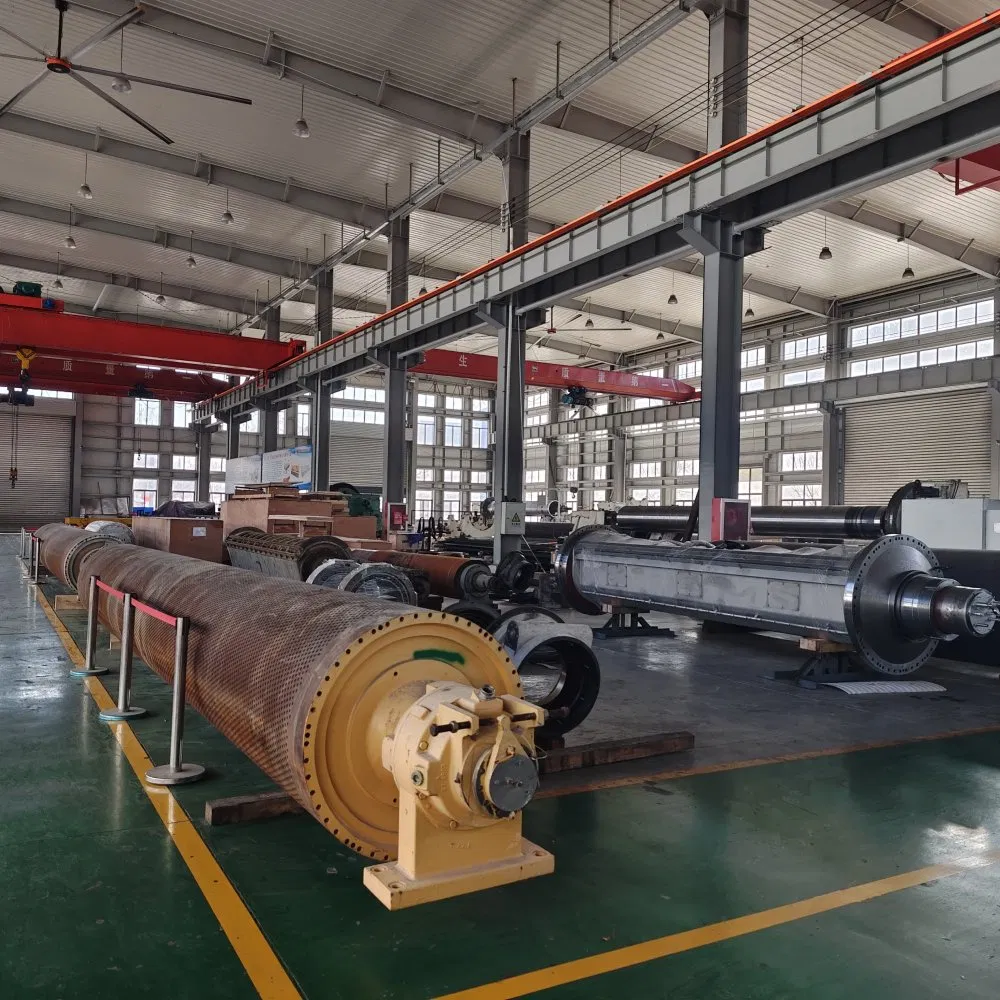In today's demanding industrial landscape, minimizing operational costs is paramount. Energy consumption represents a significant portion of these expenses, prompting businesses to explore innovative solutions for improved efficiency. Energy-efficient stone rolls have emerged as a promising technology with the potential to revolutionize energy consumption in numerous applications.
The core principle behind energy-efficient stone rolls lies in their thermal properties. Certain types of stone possess excellent heat retention capabilities. This allows them to absorb and release thermal energy more effectively than conventional materials. Imagine preheating an oven for baking. Traditional ovens require significant energy to reach and maintain the desired temperature. However, an oven lined with energy-efficient stone rolls can retain heat much longer, reducing the energy required for reheating cycles.
The applications of these specialized stone rolls extend far beyond baking. Industries such as metal processing, ceramics manufacturing, and chemical production also utilize heat-intensive processes. Integrating energy-efficient stone rolls into these systems can lead to substantial energy savings and, consequently, lower operational costs. Think of a foundry where molten metal is poured into molds. Maintaining the required temperature for the molten metal is energy-intensive. Lining the furnaces and crucibles with these rolls can significantly reduce energy loss and boost overall efficiency.
One might wonder, what makes these stone rolls so efficient? The answer lies in their unique composition and structure. Specific types of stone, like soapstone or certain volcanic rocks, have naturally high thermal mass. This allows them to store significant amounts of thermal energy without drastic temperature fluctuations. Furthermore, the cylindrical shape of the rolls maximizes surface area for efficient heat transfer.
Implementing energy-efficient stone rolls isn't a one-size-fits-all solution. The specific type of stone, the roll dimensions, and the integration method must be carefully considered based on the specific application. For instance, a ceramic kiln might benefit from smaller diameter rolls to maximize heat distribution, whereas a large industrial furnace might require larger rolls for optimal heat retention.
Beyond the direct energy savings, these rolls offer other advantages. Their durability and longevity contribute to reduced maintenance costs and downtime. Unlike traditional refractory materials, which are prone to cracking and degradation, energy-efficient stone rolls offer superior resistance to thermal stress, extending their lifespan and reducing replacement frequency.
Considering the long-term financial implications, the initial investment in energy-efficient stone rolls can be quickly offset by the substantial reductions in energy consumption. Businesses can calculate their potential return on investment by analyzing their current energy usage, the anticipated savings from implementing the rolls, and the projected lifespan of the rolls.
How can your business leverage this technology? Assessing your current energy consumption patterns is the first step. Identifying areas where heat is lost or wasted can pinpoint opportunities for implementing energy-efficient stone rolls. Consulting with experts in thermal engineering can provide tailored solutions for specific industrial processes.
Furthermore, government incentives and rebates for energy-efficient technologies can further reduce the initial investment cost and accelerate the return on investment. Many regions offer programs to encourage the adoption of sustainable practices, making the switch to energy-efficient stone rolls even more financially attractive.
Are you ready to explore the cost-saving potential of energy-efficient stone rolls? Evaluating your current system and exploring available options can pave the way for a more sustainable and cost-effective operation.
The benefits of incorporating energy-efficient stone rolls extend beyond the financial realm. By reducing energy consumption, businesses also contribute to a smaller environmental footprint. This commitment to sustainability can enhance brand image and resonate with environmentally conscious consumers.
In conclusion, energy-efficient stone rolls represent a significant advancement in optimizing energy consumption and reducing operational costs. From industrial furnaces to baking ovens, their versatility and effectiveness offer a compelling solution for businesses seeking sustainable and cost-effective operations. By embracing this technology, companies can not only improve their bottom line but also contribute to a greener future.



